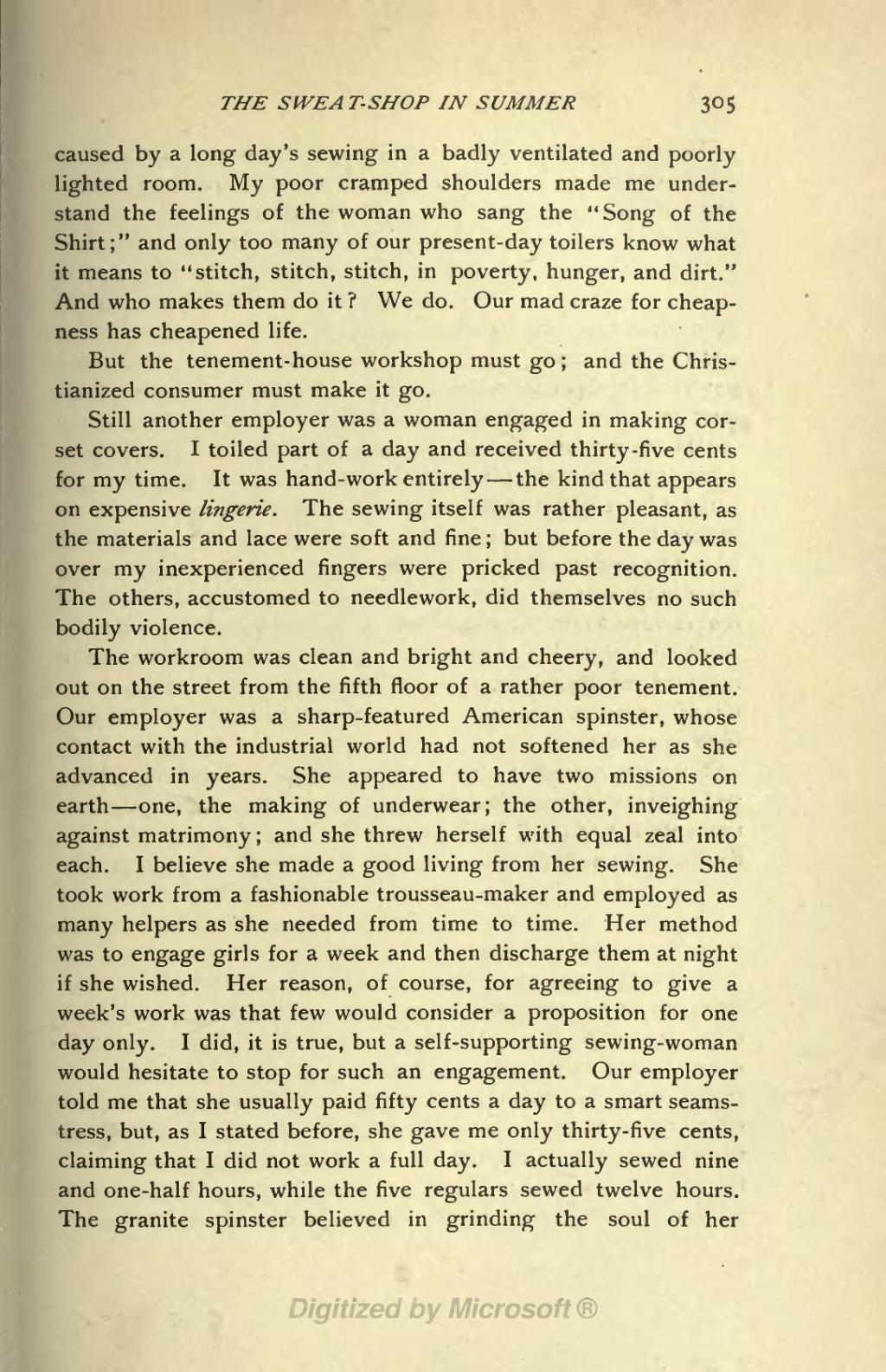THE SWEA T-SHOP IN SUMMER 305
caused by a long day's sewing in a badly ventilated and poorly lighted room. My poor cramped shoulders made me under- stand the feelings of the woman who sang the "Song of the Shirt;" and only too many of our present-day toilers know what it means to "stitch, stitch, stitch, in poverty, hunger, and dirt." And who makes them do it ? We do. Our mad craze for cheap- ness has cheapened life.
But the tenement-house workshop must go ; and the Chris- tianized consumer must make it go.
Still another employer was a woman engaged in making cor- set covers. I toiled part of a day and received thirty-five cents for my time. It was hand-work entirely the kind that appears on expensive lingerie. The sewing itself was rather pleasant, as the materials and lace were soft and fine; but before the day was over my inexperienced fingers were pricked past recognition. The others, accustomed to needlework, did themselves no such bodily violence.
The workroom was clean and bright and cheery, and looked out on the street from the fifth floor of a rather poor tenement. Our employer was a sharp-featured American spinster, whose contact with the industrial world had not softened her as she advanced in years. She appeared to have two missions on earth one, the making of underwear; the other, inveighing against matrimony ; and she threw herself with equal zeal into each. I believe she made a good living from her sewing. She took work from a fashionable trousseau-maker and employed as many helpers as she needed from time to time. Her method was to engage girls for a week and then discharge them at night if she wished. Her reason, of course, for agreeing to give a week's work was that few would consider a proposition for one day only. I did, it is true, but a self-supporting sewing-woman would hesitate to stop for such an engagement. Our employer told me that she usually paid fifty cents a day to a smart seams- tress, but, as I stated before, she gave me only thirty-five cents, claiming that I did not work a full day. I actually sewed nine and one-half hours, while the five regulars sewed twelve hours. The granite spinster believed in grinding the soul of her
